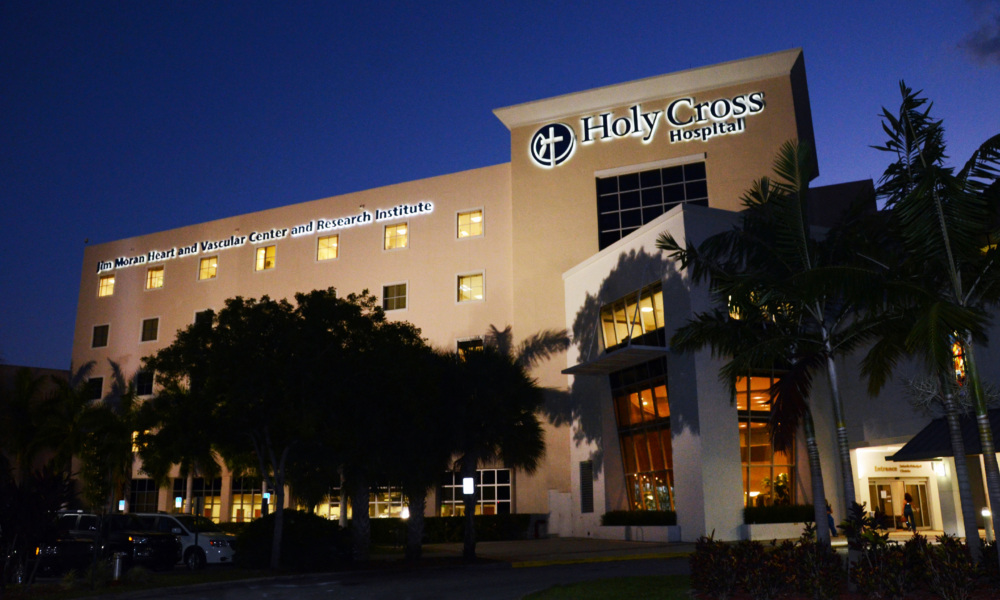Regional or General Anesthesia: Which is Preferred for Hip or Knee Replacement Surgery?
One of the preoperative decisions prior to hip or knee replacement surgery is what type of anesthesia will be administered. Before your surgery is scheduled, your anesthesiologist will review your past medical history, give you an exam and then discuss the type of anesthesia recommended for you. Ultimately, the final decision is made jointly between you and your anesthesiologist.
General anesthesia involves a complete loss of consciousness, while regional anesthesia numbs a specific area of the body without altering brain or breathing functions. Occasionally, an anesthesiologist will strongly recommend one over the other because a of patient’s current medical condition or because of the type of procedure.
At first, many of my patients say to me, “Just knock me out; I don’t want to remember anything.” That’s when I explain that even if a regional anesthetic is used, they will be given sedatives, will be asleep throughout the procedure and will not remember the surgery.
Prior to choosing which anesthesia is best for you, your doctor should consider several factors including:
- Have you had anesthesia before, what type and what was your reaction/experience?
- Do you smoke, drink or use recreational drugs?
- Are you currently overweight?
- Are you being treated for any condition other than your joint replacement?
- What medications, nutritional supplements, vitamins, or herbal remedies are you taking?
- Do you have any allergies, drug or otherwise?
- Have you ever experienced bad side effects from a drug?
General anesthesia affects the entire body, acting on the brain and nervous system to induce a deep sleep. Usually, it is administered by injection or inhalation of special gasses. Some of the side effects from general anesthesia can include:
- Having a sore throat after surgery, if a tube is placed through the mouth and into trachea to control breathing.
- Historically there has been an increase in nausea after general anesthesia, although with modern drugs and techniques, this occurs much less.
- Some older patients report more confusion after waking up, or family members notice a patient’s confusion, but this also has decreased with modern drugs and techniques.
There are two types of regional anesthesia: an epidural and a spinal block. During a spinal block, a fine needle is used to inject a local anesthetic between the spinal vertebrae and into subarachnoid space (the fluid-filled space that surrounds the brain, spinal cord and nerve roots). Since the injection site is located below the spinal cord, the spinal cord is not in jeopardy of being injured. Medications also are given first, which help the patient to relax before a spinal block is administered. Most patients never even remember having the spinal block placed.
A spinal block produces a rapid numbing effect typically at the level of, and below the injection site. After the block is placed and it is confirmed that the legs are anesthetized, the anesthesiologist administers different medicines by IV and the patient simply sleeps, but still is breathing on his or her own. Again, I reassure my patients that they will not feel anything or remember the surgery.
An epidural block is very similar to a spinal block except the local anesthetic is injected through a small catheter that is inserted into the patient’s lower back and administers a larger quantity of local anesthetics over a longer period of time than with a spinal block. Unlike a spinal block, the epidural catheter is placed slightly closer to the skin and farther from the spinal cord. The greatest advantage of an epidural block is that local anesthesia can be re-injected through the catheter hours or even days after it’s placed. It is a particularly popular form of anesthesia for childbirth.
For many years, when my patients were having both of their hips or knees replaced during the same anesthetic session, they were given epidurals. We no longer do this because better forms of postoperative pain management have been developed. Because we do not plan on re-dosing the anesthetic after the initial dose, there is no increased benefit over a spinal block. Also, the epidural anesthetic typically requires more skill to place and potentially has more complications.
Although both general and regional anesthesia are safe, I encourage my patients to have regional anesthesia when appropriate because I see fewer side effects.
Benefits of regional anesthesia include:
- Patients do not use a breathing tube, so there is no irritation to the throat and airway.
- During a spinal block, medications also can be administered to help manage postoperative pain.
- There tends to be less blood loss during surgery, because regional anesthesia lowers the blood pressure during surgery, potentially reducing the need for a transfusion.
- A number of studies have reported a lower incidence of deep vein thrombosis (DVT), which is the forming of blood clots.
- Patients tend to wake up in the recovery room more smoothly and with less pain.
- Patients also tend to wake up feeling better, especially because there is less nausea.
- Sometimes older patients are more vulnerable to confusion after general anesthesia. In my experience, when using regional anesthesia I see much less confusion in this group. I think this is because fewer drugs are used during surgery.
More now, than ever in my career, I recognize that my patients feel much better almost immediately after surgery and routinely tell me the next morning how clear-minded and well they feel. Hence, they want to go home much more quickly.
Many of my patients who have experienced general anesthesia often tell me how vastly different and better it was to have a spinal block for surgery. Regional anesthesia does make a difference, but the overall experience for my patients is greatly enhanced by the multi-modal pain regimen we follow at The Leone Center for Orthopedic Care, which minimizes use of narcotics.
However, for some patients a regional anesthetic simply is not appropriate, and for those who do have general anesthesia, they also do well with surgery.
And, while most of my patients do choose to have a spinal block rather than general anesthesia, it is important that you consider all of the options and discuss them with your surgeon and anesthesiologist, so the right method with the best outcome can be chosen for you.
We thank you for your readership. If you would like a personal consultation, please contact our office at 954-489-4575 or by email at LeoneCenter@Holy-cross.com.












My Husband is thinking about a third hip surgery(Repair). He has congestive heart failure with a defig.and deg. joint disease. He has also had neck & back surger. They are thinking about an spine or Epideral because of his heart problems. Do you know how much danger is involved in this without general Anesthesia. Is it better
Dear Mrs. Meek,
Typically my patients and their families meet with the anesthesiologist the morning of their surgery and discuss the advantages and disadvantages of various types of anesthesia (spinal vs. general). Most of my patients choose to have their hip or knee replacement surgery with spinal anesthesia. This also is a national trend. In most cases, both will work well and the patient selects. However, I emphasize to all of my patients that the final decision regarding anesthesia must be made by the anesthesiologist, who ultimately is responsible for their safety.
Your husband’s extensive medical conditions do increase his potential risks associated with any surgery. Depending on each specific patient’s medical conditions, one form of anesthesia may be safer than another. My advice is for you and you husband to discuss any concerns with his doctors and particularly with his anesthesiologist, and then allow the anesthesiologist to make the final decision as to the safest form of anesthesia for your husband.
I wish you and your family the best,
Dr. William Leone
I have been researching the use of Midazolam as conscious sedation. I am having a THR in a few weeks. I have read about issues like long term memory loss, and also having a partial memory of a traumatic operation. I am 65, have had general anaestheics in the past with no particular problems. I haven’t yet spoken to the surgeon who will be doing the op. I just want to have enough information to ask the right questions. THankyou for this web site, it has been very helpful ,
Dear Andrea,
Midazolam (commonly called Versed) is a drug that anesthesiologists commonly give to their patients prior to surgery because, in most people, it decreases anxiety and the ability to create new memories. Clinically I see patients relax and not recall specific events from the operating room, which I think is optimal. I have not heard or learned that it interferes with long-term memory, but I don’t know for sure. Many individuals express fears of mental demise after general anesthesia. Once again, to my knowledge, most of these fears have not been clearly linked to a specific drug, but it is a common fear.
Most of my patients have a spinal anesthetic to undergo surgery. Typically, when a spinal is used patients receive fewer drugs, breathe on their own, and are not fully paralyzed (they are temporarily paralyzed below the waist). As they awaken, pain develops much more slowly, hence is easier to control. I think a lot of complications such as nausea, vomiting, and confusion are significantly decreased when using a spinal versus a general anesthetic. There are, however, some patients who are not good candidates for regional (spinal) anesthesia.
I suggest you discuss your concerns with your anesthesiologist and ask for his or her opinion and direction. In the end, I tell all of my patients that the final decision regarding the type of anesthesia they will receive should be made with anesthesiologist.
I wish you well.
Dr. William Leone
We thank you for your readership. If you would like a personal consultation, please contact our office at 954-489-4584 or by email at LeoneCenter@Holy-cross.com. General comments will be answered in as timely a manner as possible.
I am scheduled for THR tomorrow July 12, 2016. I am a little overwhelmed I just found out they will be using spinal block and versed. I had THR on my left hip in 2012 with general anesthesia. My concern is I’m afraid I will be aware of what is taking place. I really was not worried prior to finding out the change from general anesthesia now I am very very anxious.
Dear Cynthia,
By the time you receive this response, your surgery will be over. I hope the entire experience, including the anesthetic delivered, was a good one. Typically, patients are administered other meds (including Versaid) in the pre-operative holding area, prior to being taken back to the operating room, to help relieve anxiety and make them feel more relaxed. These drugs also interfere with short-term memory, so patients do not recall any of the events after leaving the holding area, including the placement of the spinal, if that is the anesthetic method chosen.
Indeed, the vast majority of my patients also are treated with a spinal anesthetic for surgery. There are many advantages to spinal versus general anesthesia when replacing a hip or knee joint. However, I tell all of my patients that they will discuss the type of anesthesia to be given with the anesthesiologist, and will make the final decision together with that individual.
Once again, I hope you are recovering nicely.
Dr. William Leone
We thank you for your readership. If you would like a personal consultation, please contact our office at 954-489-4584 or by email at LeoneCenter@Holy-cross.com. General comments will be answered in as timely a manner as possible.
I RECENTLY HAD A THR UNDER GENERAL ANESTHESIA.THE ANESTHESIA CAUSED MY COLON TO SWELL AND ALMOST BURST.I HAVE OGLIVUE SYNDROME.WOULD A REGIONAL OR SPINAL EPIDURAL HAVE THE SAME EFFECTS AS A GENERAL? WOULD THIS BE A SAFER OPTION FOR ME AND MY COLON?